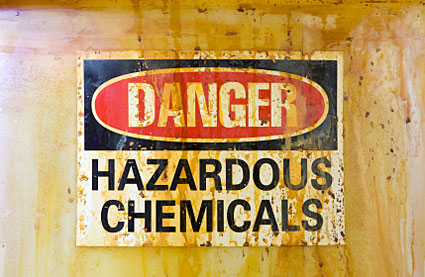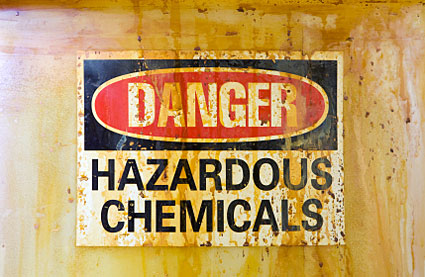 Environment Canada — our northern neighbor’s version of the EPA — has officially declared bisphenol A (BPA) toxic. The ubiquitous chemical, found in the lining of nearly all cans used by the food and beverage industry, will have to be phased out in Canada.
Environment Canada — our northern neighbor’s version of the EPA — has officially declared bisphenol A (BPA) toxic. The ubiquitous chemical, found in the lining of nearly all cans used by the food and beverage industry, will have to be phased out in Canada.
BPA is vile stuff. Here’s how Scientific American recently described it: “In recent years dozens of scientists around the globe have linked BPA to myriad health effects in rodents: mammary and prostate cancer, genital defects in males, early onset of puberty in females, obesity, and even behavior problems such as attention-deficit hyperactivity disorder.”
The North American chemical industry is furious with Environment Canada’s decision. The American Chemistry Council has vigorously defended BPA during Environment Canada’s toxic review, declaring that the agency had “pandered to emotional zealots” by even considering the toxic designation, the Toronto Star reports. The industry group demanded that Environment Canada halt the review process; Environment Canada held firm.
In our political system, the chemical industry has had better luck pushing its agenda.
In January, the FDA took a singularly maddening position on the stuff, as Tom Laskawy reported for Grist. On the one hand, after years of denying mounting evidence that BPA posed serious health risks, the agency declared it had “some concern about the potential effects of BPA on the brain, behavior, and prostate gland in fetuses, infants, and young children.”
On the other, the agency has essentially claimed it is unable to ban it from use. “Today there exist hundreds of different formulations for BPA-containing epoxy linings, which have varying characteristics,” and food companies aren’t obligated to declare which ones they’re using, the agency complained in its January statement. “If FDA were to decide to revoke one or more approved uses, FDA would need to undertake what could be a lengthy process of rulemaking to accomplish this goal,” the agency declared, referring to itself in the third person.
In other words, the poison has been distilled into so many forms that it would take a lot of work to keep it out of food processing. And rather than initiate that process, FDA chose to sit on its hands — meaning that the food industry still knowingly exposes millions of people every day to a chemical the FDA acknowledges is harmful.
Laskawy aptly read the report as “a bureaucratic cry for help” — FDA decision makers’ acknowledgement that, in the face of chemical-industry pressure, “they really [don’t] have the authority to ban BPA or even to meaningfully restrict its use.” He concluded: “It seems that only Congress can provide the antidote.”
The U.S. Senate to the rescue? Not so much. Earlier this month, a ban on BPA was removed from the Senate’s food safety bill under industry pressure. When Sen. Dianne Feinstein (D-Calif.) vowed to add an amendment to a compromise bill that would ban BPA, negotiations on the bill stalled.
In the wake of the massive salmonella-tainted egg recall, the Senate will probably have to act on food safety legislation when it returns in September. Let’s hope Canada’s action on BPA gives our elected officials the spine they need to stand up to the chemical industry.



